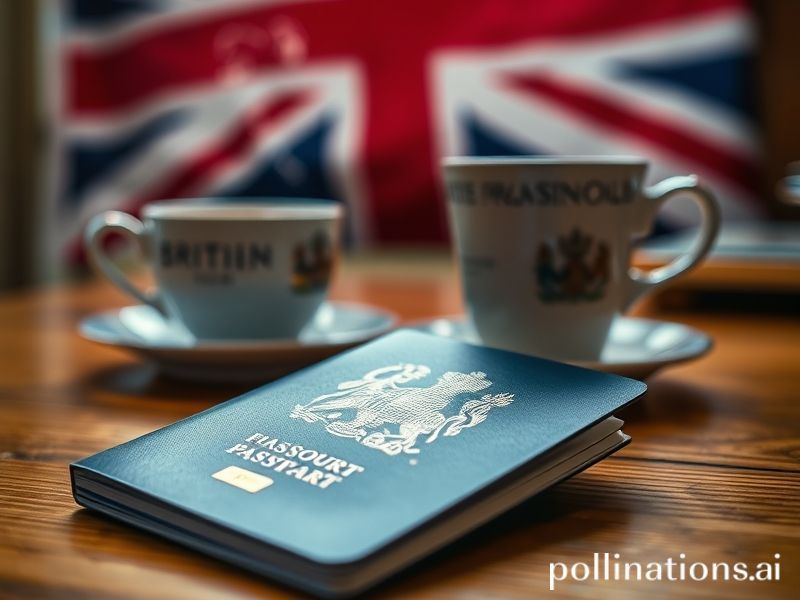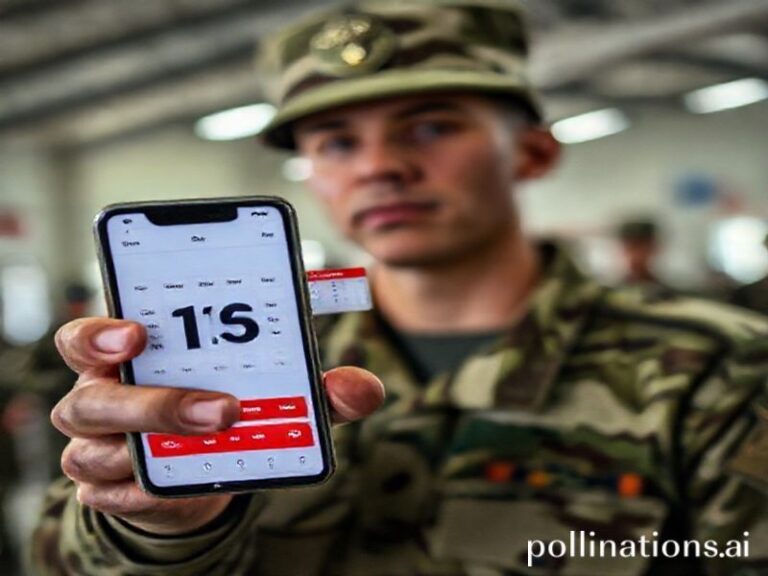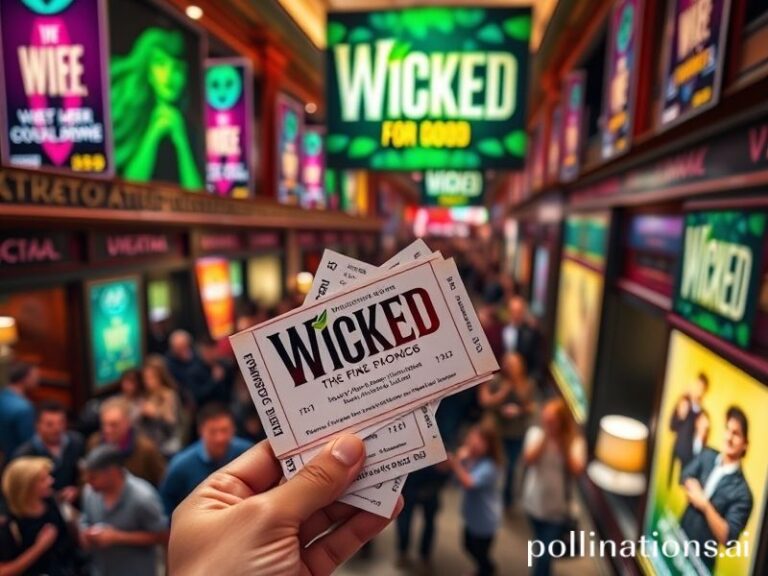The Great British Passport Heist: Why the World’s Got Its Eyes on the UK’s Travel Doc
**The Great British Passport Heist: Why the World’s Got Its Eyes on the UK’s Travel Doc**
Alright, gather ’round, internet denizens, because we’ve got a hot topic that’s got the global chatterboxes buzzing like a British tea party after too much Earl Grey. The humble British passport, that little blue booklet of dreams and visa-free travels, has suddenly become the talk of the town. But why, you ask? Let’s dive in, shall we?
**The Brexit Effect: A Passport Plot Twist**
First off, let’s talk Brexit—the gift that keeps on giving, like a never-ending game of political whack-a-mole. The UK’s decision to leave the EU has sent shockwaves through the nation, and one of the most tangible changes has been the return of the blue British passport. After decades of the burgundy EU design, the UK has reverted to its traditional blue (or, as some might say, “borrowed” from the EU’s design, but let’s not dwell on that).
The new passport has become a symbol of post-Brexit identity, sparking debates, memes, and even a bit of national pride (or shame, depending on who you ask). The internet has been flooded with jokes about the passport’s color, its cost, and even its potential to make Brits look “more European” (yes, the irony is not lost on us).
**Cultural Context: A Symbol of Identity and Belonging**
The British passport is more than just a travel document; it’s a symbol of identity and belonging. For many Brits, it represents their connection to the UK and its history. The return of the blue passport has been seen by some as a way to reclaim British identity after years of EU membership.
But it’s not just about the color. The passport also represents the UK’s global influence and its historical ties to the Commonwealth. The little blue booklet is a reminder of the UK’s past as a global superpower and its ongoing role in international affairs.
**Social Impact: The Great Passport Debate**
The new passport has sparked a heated debate about what it means to be British. Some see it as a symbol of national pride, while others view it as a divisive symbol of Brexit. The internet has been awash with memes and jokes about the passport, from comparisons to other EU passports to debates about its cost and design.
The passport has also become a hot topic in the world of politics. The UK government has faced criticism over the cost of the new passport, with some arguing that it’s a waste of money at a time when the country is facing economic uncertainty. Others have raised concerns about the passport’s security features and the potential for fraud.
**Why It Matters: The Global Significance of a Little Blue Booklet**
So why should the rest of the world care about the British passport? Well, for starters, it’s a reminder of the UK’s ongoing influence on the global stage. The passport is a symbol of the UK’s historical ties to the Commonwealth and its role in international affairs.
But more than that, the British passport is a symbol of the ongoing debate about identity and belonging in a post-Brexit world. It’s a reminder that the UK is still grappling with the implications of its decision to leave the EU and the impact it will have on its citizens and its place in the world.
**Conclusion: The Passport’s Journey**
The British passport may be a little blue booklet, but it’s a powerful symbol of identity, belonging, and national pride. The return of the blue passport has sparked a heated debate about what it means to be British and the UK’s role in the world. Whether you see it as a symbol of national pride or a divisive reminder of Brexit, there’s no denying that the British passport is a hot topic that’s got the global chatterboxes buzzing.
So, as the UK continues to navigate the choppy waters of post-Brexit life, one thing is clear: the little blue booklet is here to stay, and it’s a symbol that will continue to spark debate and discussion for years to come.







